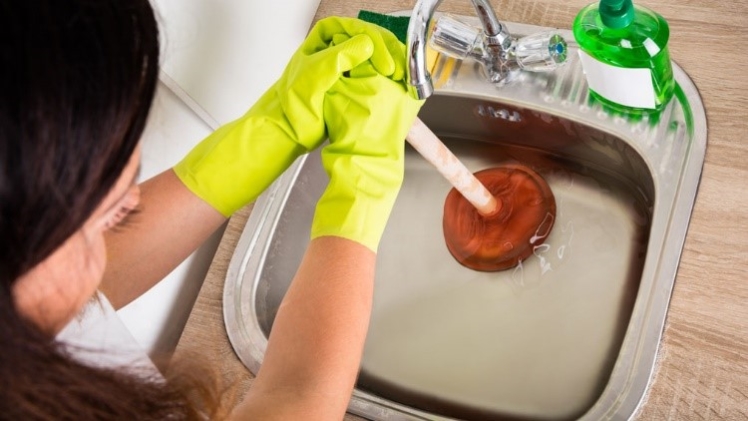Clogged drains are one of the most common plumbing problems you’ll experience as a homeowner. Typically you’ll be able to find a solution for a clogged drain yourself, but there are times when you’ll have to call in a professional to assist you in de-clogging your drains. While you may not be able to keep your drains from clogging up, there are steps you can take to prevent clogged drains. Keeping these tips in mind will help any homeowner feel at ease.
Drain Strainers
Drain strainers are particularly useful in sinks that don’t have a garbage disposal. The drain strainer helps catch any food scraps before they go down the drain. If you cook a lot, you will notice how everything slips down the drain easily. Garbage disposals can be a cause in itself of clogging your drain if it stops working. It is very common for those to stop working or get damaged. Be careful of shot glasses or anything of rough material that can slip down and potentially damage the disposal too. Once it gets damaged, you have to turn off the electricity running towards it to be safe and then troubleshoot the problem. It can be very time consuming and costly.
Disposal of Food and Grease
Most kitchen sinks come equipped with a garbage disposal to help break down any food that gets rinsed down the drain. Generally, even if you have a garbage disposal, you want to make sure you aren’t letting food scraps get into the drain. Garbage disposals can help clear up any food that goes down the drain, but they aren’t a full-proof prevention method for clogged drains.
Make sure you avoid rinsing any grease or oil down the drain. Grease and oil tend to harden over time and cause a backup in the pipes from too much buildup. Even rinsing grease and oil down the drain with hot water isn’t the best method. Instead, use a paper towel to grab any oil or grease that remains and dispose of it in the trash can. You can also drain the grease or oil into a cup that’s filled with some cold water. Once it hardens, you can dispose of the grease in the trash.
Clean Bathroom Drains Often
Bathroom drains tend to see the most hair and soap scum, among other gunk. Periodically cleaning the drains of scum will help prevent a clogged drain. If a drain clog does occur, you can use Drano to help break down any buildup that could be clogging your drains. Women’s long hair really can cause so many problems with a clogged drain. Hair gets stuck in the drain and makes it extremely hard for the water to drain. Luckily, household products like baking soda and vinegar can break a lot of that up and hopefully enable you to get rid of the clogged drain.
Watch What You Flush
Toilets are only suited to dispose of human waste and toilet paper. Any other materials can cause a backup and damage your pipes. Many argue against the use of flushable wipes. They are made to be able to flush but it’s the septic tanks and pipes that feel the overwhelming extent of the damage. Toilet paper is the only thing deemed flushable or that can disintegrate the way it is supposed to down a toilet and its pipes. So many homes have to deal with the pipes getting clogged because of wipes and feminine products. If everyone was more cognizant of what they were flushing down toilets, there would be less clogged drains and pipes .
In short, try to keep anything from going down a drain. You will save a lot of money on a plumber. Whether you find bits of food or hair going down the drain, keeping your pipes clear of debris is the best method to prevent clogged drains. Consider adding a drain stopper to sinks without a garbage disposal so you can prevent buildup in your pipes. Following these tips will help prevent your drains from clogging up. Typically you can clear a clogged drain with the help of Drano, but if you find your drain is clogging up multiple times a month, you should call a plumber to solve the problem. They are well worth the cost.

